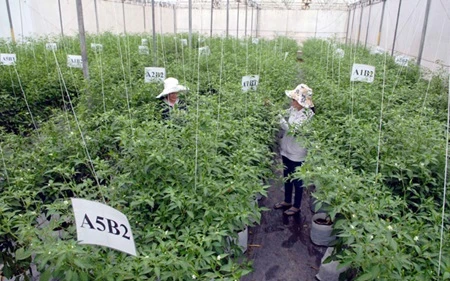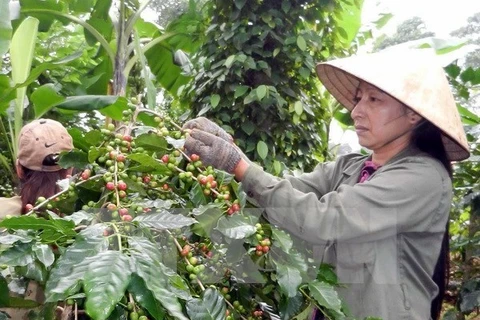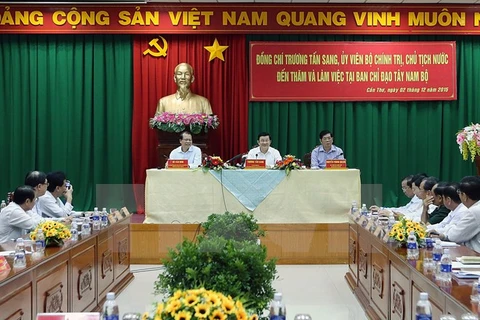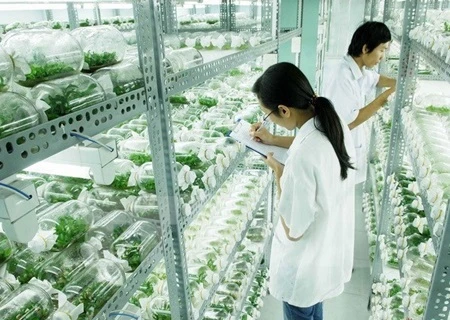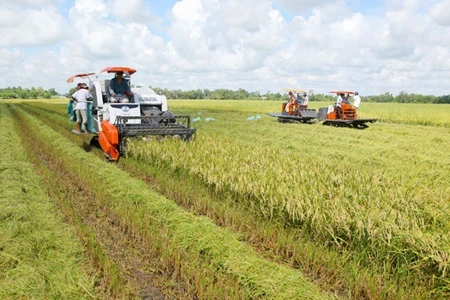HCM City (VNA) - Global trade agreements including the Trans-Pacific Partnership of which Vietnam is a party, will require improved management of production and services from local companies, including more effective use of supply chains, Ho Thanh Phong, Rector of Ho Chi Minh International University, has said.
In an interview with Vietnam News, Phong said that a new managerial approach would be necessary if the country wants to maintain its competitiveness in a more liberalised trade environment.
"These improvements would help create high-quality products that are reasonably priced," said Phong, who was speaking at the Asia-Pacific Industrial Engineering and Management Systems Conference that began on December 9 in HCM City.
The fields of industrial engineering and management are "rather new", he said, adding that only two universities in the country provide training in the fields.
More than 370 presentations will be given during the conference by scholars and researchers from 19 countries and territories.
Phong said that his research showed that effective design and management of supply chains would help stem the decline in farmers' profits.
Vietnam has long been regarded as a land of special tropical fruits such as dragonfruit and milk-apple. According to the General Statistics Office, the total area of agricultural land accounted for 79.4 percent of the country's total land area in 2013.
However, the supply chain for such fruits is facing various problems, which has led to a considerable drop in profits.
One example is the milk-apple, a specialty fruit with good quality and exclusive flavour grown mainly in the Mekong Delta region, Phong said.
"In the last 10 years, the fruit has had rapidly decreasing prices due to the ineffective operation of the supply chain network," he added.
The procurement hubs where farmers sell their produce are not located in areas near farmers. As a result, the fruit is transported from and to many places and finally to a assembly point before being transported to big cities.
Phong said the method of storing the fruit and productivity control by farmers in response to customer demand has also affected profits.
Farmers, for example, do not know how much to grow as they cannot adequately forecast customer demand. As a result, they sometimes grow too much and have an oversupply, leading to low prices.
Farmers also do not have refrigerated warehouses that can store the fruit, which can start to spoil within two days.
Phong said that an effective supply chain would include suppliers, procurement hubs, manufacturing plants, warehouses and distribution centres.
According to the US-based Dole Food Company, the world's largest producer of fruits and vegetable products, market trends in recent years show an increased desire for canned and processed fruit.
According to the Food Manufacturing magazine, published in the US, frozen and canned fruit items are the largest sectors of the food industry, popular for their convenience.
Phong said that milk-apples could be frozen in bags, processed in canned syrup in cans, used in smoothie powders or in ice cream products.
The transportation of the processed fruit would be easier as the products would not have to rely exclusively on air to maintain freshness.
Farmers could reap the benefits of processed fruit as they could use fruit with blemished skin but fresh pulp, Phong said.
The selling price would also no longer be affected by dealers, Phong said.
At the conference, a group of researchers from Taiwanese universities and institutes recommended the use of a computational analysis method for integrated supply chains in Asia.
The Mixed Integer Non Linear Programming model helps to minimize costs. It integrates production, transportation and inventory aspects for temperature-sensitive and perishable products that need special consideration during shipment in global supply chains.
The model has helped solve practical problems and given insights to export- import processes in Asia, they said.-VNA

